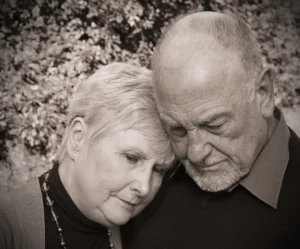Couples over 50 who are divorcing generally have different issues than younger couples. For the most part, they are couples who have been married for many years. Perhaps they have been waiting for the children to become adults and leave home. Now that that has happened, they are ready to go forward with their divorce plans.
Issues Specific to Older Couples
Some issues that are specific to older couples include:
- If there are no minor children, there are no issues of child custody or child support to consider. However, older children may still be dependent on their parents, so this might be an issue.
- In many situations, one spouse has been out of the workforce for most of the marriage, so spousal support may be warranted, at least until the stay-at-home spouse is able to develop the work skills to become self-supporting.
- The couple has generally accumulated more assets, so property division is the major issue they face in the divorce.
- Often, there are retirement plans and/or other investments which will require additional steps to properly divide.
Spousal Support

Historically, Texas law has not favored alimony because Texas is a community property state. However, the Texas Family Code does provide for an award of “spousal maintenance” in certain situations. To be eligible to receive maintenance, the requesting spouse must first prove that he or she “will lack sufficient property, including the spouse’s separate property, on dissolution of the marriage to provide for the spouse’s minimum reasonable needs.” The marriage must have lasted at least 10 years or have certain other facts to justify the award of spousal maintenance.
There are a few other circumstances listed in the statute that may allow one spouse to receive support from the other, providing the spouse who is being asked for support is capable of paying it.
After the court determines if the requesting spouse is eligible, there are a number of factors the court considers in determining whether to award maintenance. For example:
- Each spouse’s education, employment history, and ability to provide for their own basic needs.
- The contribution one spouse made to the other one’s education and training.
- The contribution of one spouse as a homemaker.
- Whether one spouse engaged in marital misconduct.
Collaborative Divorce Works Well
All couples benefit from collaborative divorce. The process works particularly well for older couples who want to keep private the facts involved in the dissolution of their marriage. Everything is confidential and all that is filed with the court is the final divorce settlement agreement. There are no public hearings so any “dirty laundry,” as well as information about finances, is kept private. The emotion toll of breaking up a long-term marriage is also handled through a mental health professional being part of the collaborative team.
For More Information About Collaborative Divorce, Contact an Experienced Dallas Family Law Attorney
To learn more about collaborative divorce and the impact of divorce on those over the age of 50, and to schedule a free initial consultation with a Dallas Family Law Attorney, contact Paula Lock Smyth Law Offices at 214-420-1800.
Paula Lock Smyth has practiced law in Texas since 1985, focusing on Family Law, Probate, Mediation, and Collaborative Divorce. She is a trained mediator, seasoned litigator, and one of the early adopters of Collaborative Divorce in Texas. Paula is a member of the State Bar of Texas, the College of the State Bar and the Texas Bar Foundation and has served as Past President of Dallas Lawyers Concerned for Lawyers. She was a Master in the Annette Stewart Inn of Court and is a Charter Member of the Collaborative Law Institute of Texas. Her legal knowledge and decades of experience make her a trusted voice on matters that impact families across Dallas and surrounding counties.
